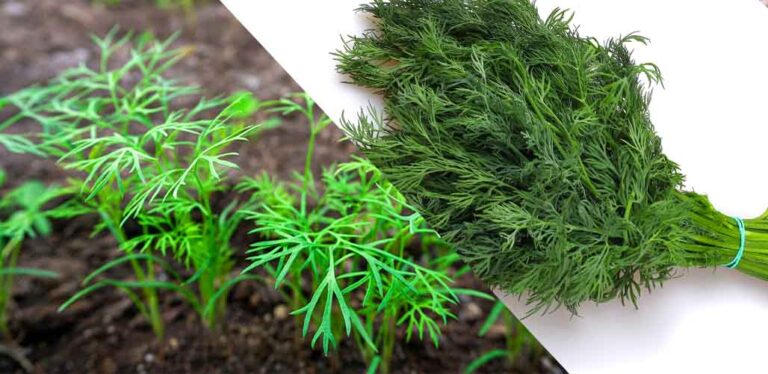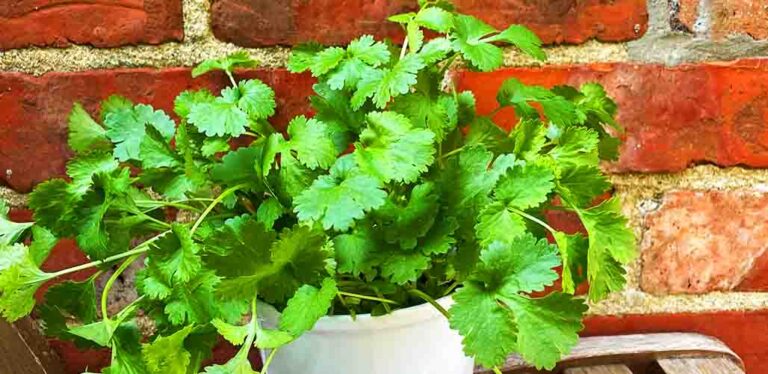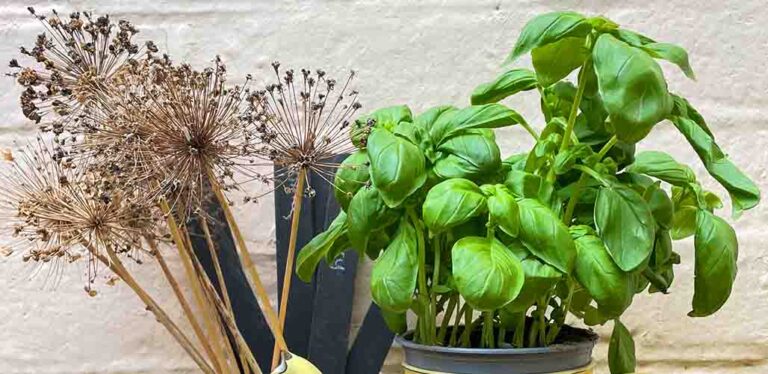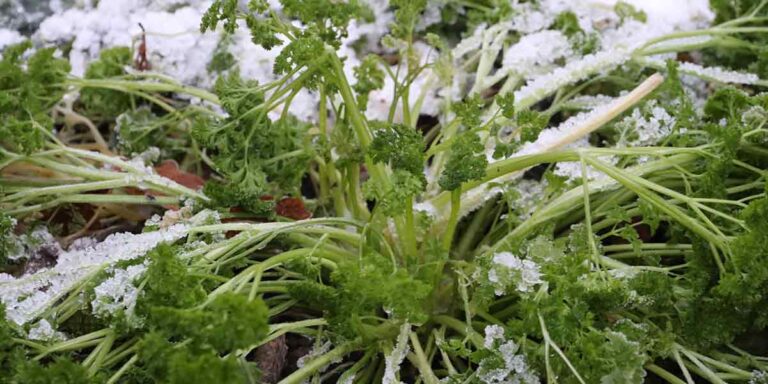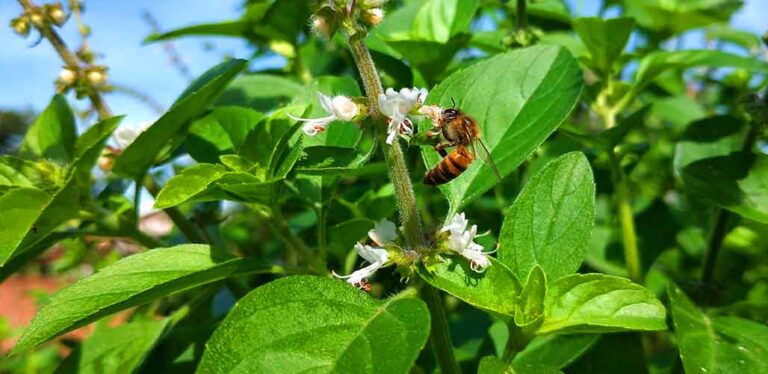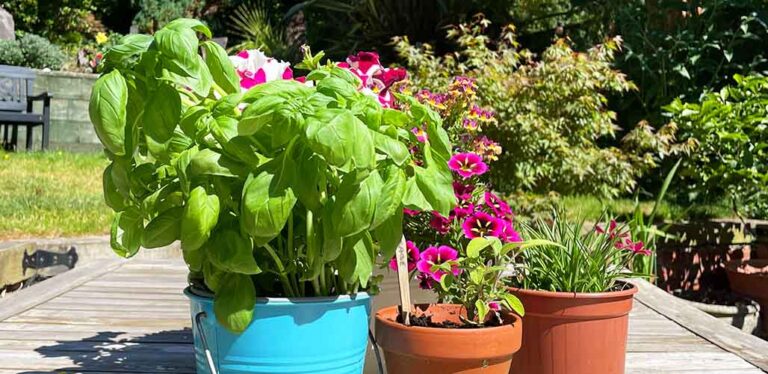What Are Chives Used For? (Why You Need Them In Your Garden!)
I have a very pretty patch of chives in my garden and right now they are covered in flowers. Not only are they decorative, they are useful too.
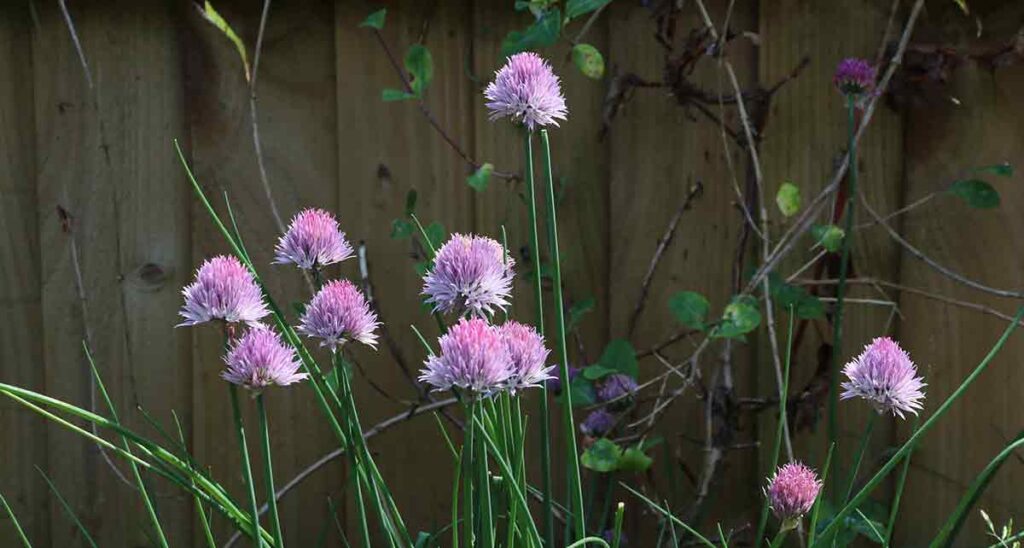
Chives are in fact related to onions, but unlike onions we don’t usually eat the part that grows under the ground. But instead focus on the long green leaves.
Contents
- Things to do with chives
- Cutting chives without killing the plant
- Safety and quantities
- Pros and cons of eating chives
Although chives do prefer a sunny spot, this clump are having quite a party on the north side of my fence. A 2002 study showed that chives are tolerant to drought stress. And chives also tolerate our cold wet winters, which makes them a very forgiving addition to any garden
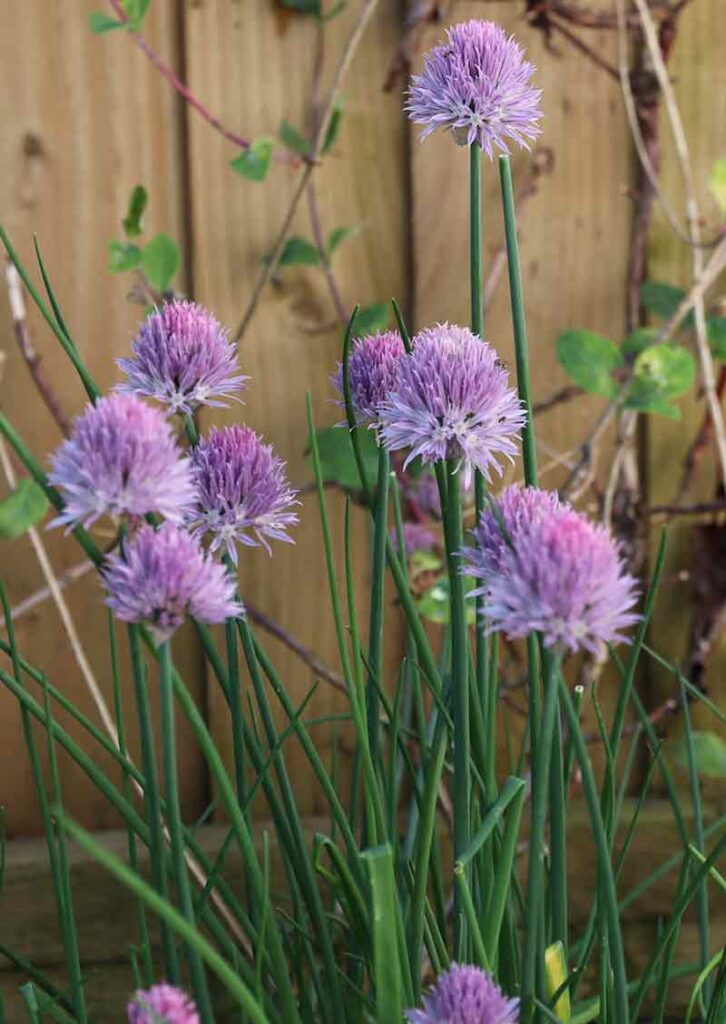
What do chives taste like?
I love the taste of chives. Their leaves have a very mild oniony flavor, similar to leeks, which is delicious. But they also come with a hint of garlic. And for good measure you get to feel virtuous when eating them because they are green!
What I didn’t know until today was that Chive flowers are edible too! They taste even milder than the leaves apparently and I’ll be adding some to my next salad! Chives flower in my zone in June. Mine are in full bloom as I write. And they are really pretty!
When I was a child my mother used to mix freshly chopped chives with a big dollop of cottage cheese and we would spread it on some crusty bread, or buttered toast, for a delicious snack.
I have found a range of additional uses for our chives over the years and thought you might find these ideas helpful. They are surprisingly varied!
9 Things to do with Chives
- Dice the leaves into small chunks and sprinkle them on soups just before serving. This is one of our favorites.
- Plant them under rose bushes to deter aphids
- Add chopped chive leaves to salads
- Mix them into beaten egg for your omelettes just before cooking. Yummy!
- Plant them in your vegetable patch around crops that are vulnerable to pests. These pesky critters do not like the smell of chives!
- Make the chive flowers into chive blossom vinegar. I’m definitely going to try this awesome recipe. Lots of great chive based information in that article too!
- Chop up excess chives and use as a mulch around strawberries to deter slugs
- Sprinkle chopped chive leaves onto mashed potato, baked potato (my second favorite) or baby new potatoes dripping with melted butter. Any kind of potato really!
- Plant anywhere you want to attract bees (and other pollinating insects)
Like many other members of the onion family, many pest find chives unattractive and chives may help to reduce pests in your flower borders and vegetable patch. A Chinese study carried out in 2013 investigated the way that chives planted among bananas, helped to control Panama disease and discovered that chives produce an antifungal substance. I’m not suggesting you replace anything in your bathroom cabinet with chives, just pointing out how awesome these pretty plants are!
You’ll notice in some cases we use the cut leaves of chives to control pests. But what about the impact on your chive plant? Well the news is good!
Do chives grow back after cutting?
Yes they do, unlike some other herbs, chives do not suffer permanent damage if you cut them.
I cut my chives back after the flowers have faded, and if you do the same, you’ll get more leaves and fresh growth to last you for the rest of the summer
Even if you harvest the majority of the plant, they will simply grow back again either this season, or if it is later in the year, you may have to wait until next year to see them back to their former glory.
Can I dry cut chives to store them?
Chives are not a herb that stores well when dried. I find that they do freeze well though. Just seal freshly chopped chives in a ziplock back and pop them in the freezer for another day.
Is it safe to eat chives raw?
Yes it is! Chives do not need to be cooked. In fact, if you are going to add chives to your recipes be sure to add them at the last minute. Cooking tends to damage that delicate flavor and they are perfectly safe to eat raw as a garnish.
What are the cons of eating chives?
If you are allergic to plants related to chives, members of the allium or onion family for example, then it’s best to give chives a miss as they may cause similar problems.
It’s also a good idea to eat chives in moderation. Chives are generally eaten as a garnish rather than as a side dish or main course. Limiting yourself to a tablespoon full of chopped chives is a good rule of thumb. In larger quantities, some people may find they cause digestive discomfort.
Are there benefits to chives?
Not only are they a safe and enjoyable garnish or addition to salads, chives may also be good for your long term health. According to webmd, chives have some impressive health benefits and may even protect against dementia!
They also have a long growing season, come back year after year, are easy to propagate, and are pretty to look at. It’s a win win all round.
Let me know if you have any more recipes that include chives. I’d love to give them a try!

